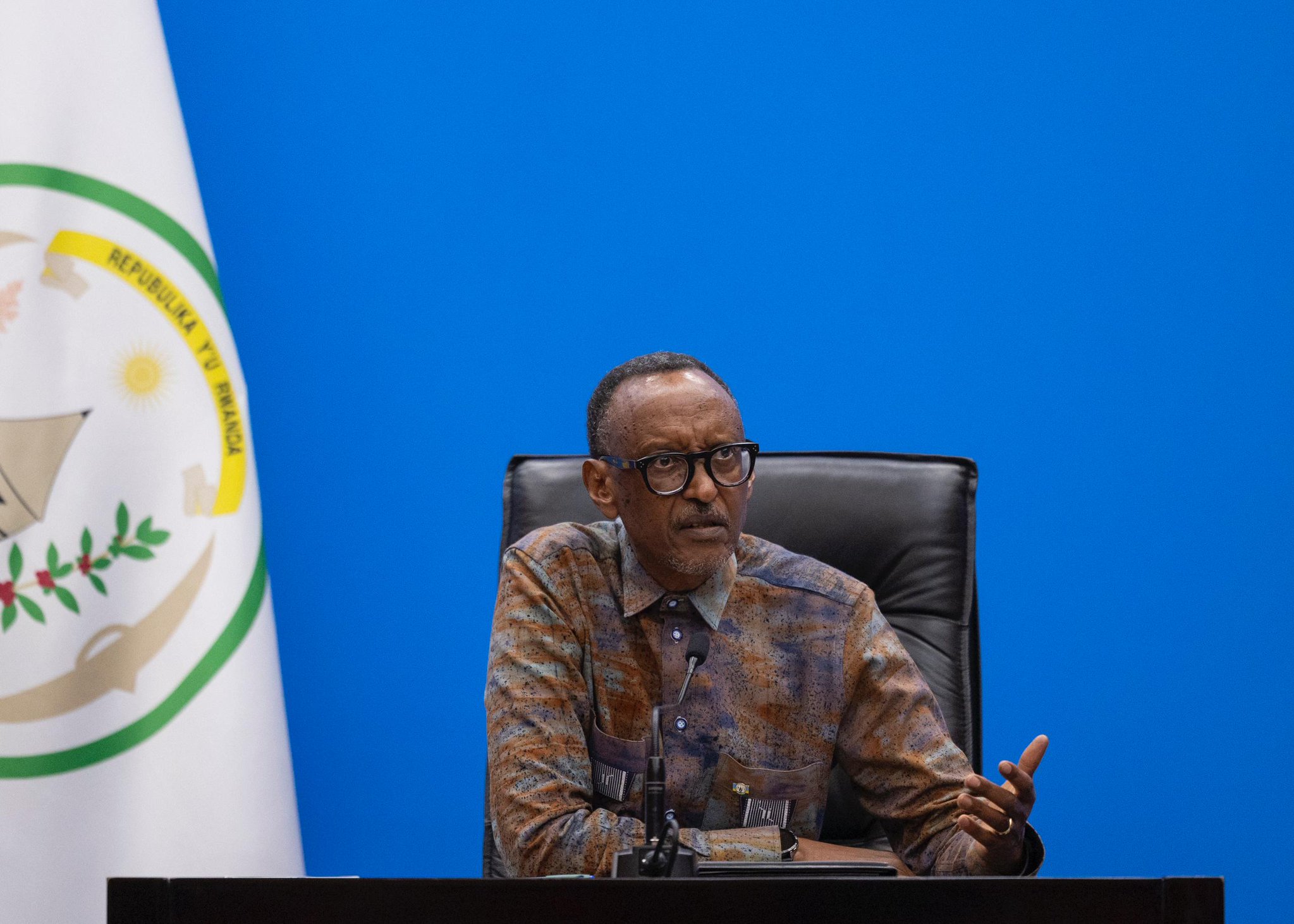President Paul Kagame is not happy. Albeit it’s a perpetual battle of mind and control of decisions against continuous hostility against Rwanda by the closest neighbors.
In held a press conference in Thursday afternoon, January 9, Kagame offered a candid and critical assessment of the ongoing conflict in the Democratic Republic of Congo (DRC). The president’s remarks were an important contribution to the conversation surrounding the DRC crisis, challenging prevailing narratives and offering a deeper, more nuanced perspective on the region’s complexities. Kagame’s comments addressed the root causes of the conflict, the role of international actors, and the need for greater regional cooperation in finding lasting solutions to the crisis.
At the core of Kagame’s analysis was a critique of the way the international community has framed the conflict. While much of the global discourse has focused on territorial disputes and the activities of rebel groups like the M23, Kagame emphasized that the real issue lies in the colonial-era borders that have long disregarded the ethnic and cultural realities of the region. “The problem in Congo is not about one rebel group or another. It is about the history that we all ignore, and the fact that many of these problems are a result of borders that don’t respect the reality of the people who live there,” Kagame stated, underscoring the long-lasting impact of artificial borders on regional stability.
The Rwandan president also criticized the portrayal of the M23 and other armed groups as foreign entities, noting that many of the fighters involved in the conflict are Congolese citizens, often of Rwandan descent. “They are called rebels, but they are citizens of Congo. Their only crime is that they speak Kinyarwanda, which has been used against them as a marker of foreignness,” Kagame remarked. This observation highlights the complexity of identity and nationality in a region where ethnic and linguistic divisions often cross modern political boundaries.
In addition to the analysis of the conflict’s root causes, Kagame took aim at the international community’s response to the crisis. He questioned the consistency and fairness of the global response, pointing to the presence of other foreign troops in the region, such as those from Uganda and Burundi, and asking why Rwanda has been excluded from similar cooperative efforts. “When Rwanda offers to cooperate with the DRC and its neighbors to address shared security concerns, we are told no. Why are we being treated differently?” he asked, calling for greater regional collaboration in addressing the crisis.
Kagame also turned his attention to the broader regional context, particularly the DRC’s sovereignty and territorial integrity, which he argued are often invoked in a manner that oversimplifies the situation. He pointed to the ongoing presence of groups like the FDLR (Democratic Forces for the Liberation of Rwanda), which have been terrorizing the region for decades, as an example of the complexities that cannot be ignored. “You cannot keep ignoring the presence of groups like the FDLR, which have been terrorizing the region for decades. The international community spends billions of dollars on peacekeeping, but the problem persists,” Kagame remarked, suggesting that peace cannot be achieved without addressing the deeper structural issues that perpetuate the violence.
The humanitarian crisis in the DRC also weighed heavily on Kagame’s remarks. He expressed frustration with the international community’s failure to prioritize the protection of civilians and the provision of aid to those displaced by the conflict. “People are dying, people are being displaced, and the world is looking the other way,” he lamented, calling for a shift in focus towards humanitarian efforts over geopolitical considerations.
The backdrop of Kagame’s press conference was the rising tensions between Rwanda and the DRC, particularly in light of inflammatory rhetoric from DRC officials. In a recent address, DRC President Félix Tshisekedi condemned his government’s inability to protect citizens in the eastern regions from the M23 rebels, while also accusing the international community of neglecting the crisis. Tshisekedi ruled out any dialogue with Rwanda, further complicating efforts for regional cooperation. Meanwhile, DRC Justice Minister Constant Mutamba recently escalated tensions by labeling Rwanda and President Kagame as the “enemy” of the DRC, creating an atmosphere of fear and suspicion within the country.
The situation remains volatile, with the M23 continuing to exert control over North Kivu province and further displacing thousands of civilians. The DRC government has accused Rwanda of backing the M23 rebels, a claim that has been supported by some U.N. experts but firmly denied by Rwanda. As the international community debates its response, Kagame’s remarks shed light on the need for a more nuanced and comprehensive approach to the crisis—one that considers the historical, ethnic, and geopolitical factors at play.
Kagame concluded his press conference with a call for regional cooperation and a long-term approach to peace. “We can solve this problem if we address it honestly, with a clear understanding of the history and the people involved,” he said, emphasizing that lasting peace can only be achieved by confronting the root causes of the conflict and working together to find sustainable solutions.
In the broader context of Rwanda’s foreign policy, Kagame’s remarks on the DRC offer a critical perspective on the complexities of regional conflicts and the challenges of achieving peace in a region where historical grievances, ethnic divisions, and political rivalries intersect. His call for a more honest and comprehensive approach to the DRC crisis serves as a reminder of the importance of understanding the deeper dynamics that shape the future of peace and stability in the Great Lakes region.




















